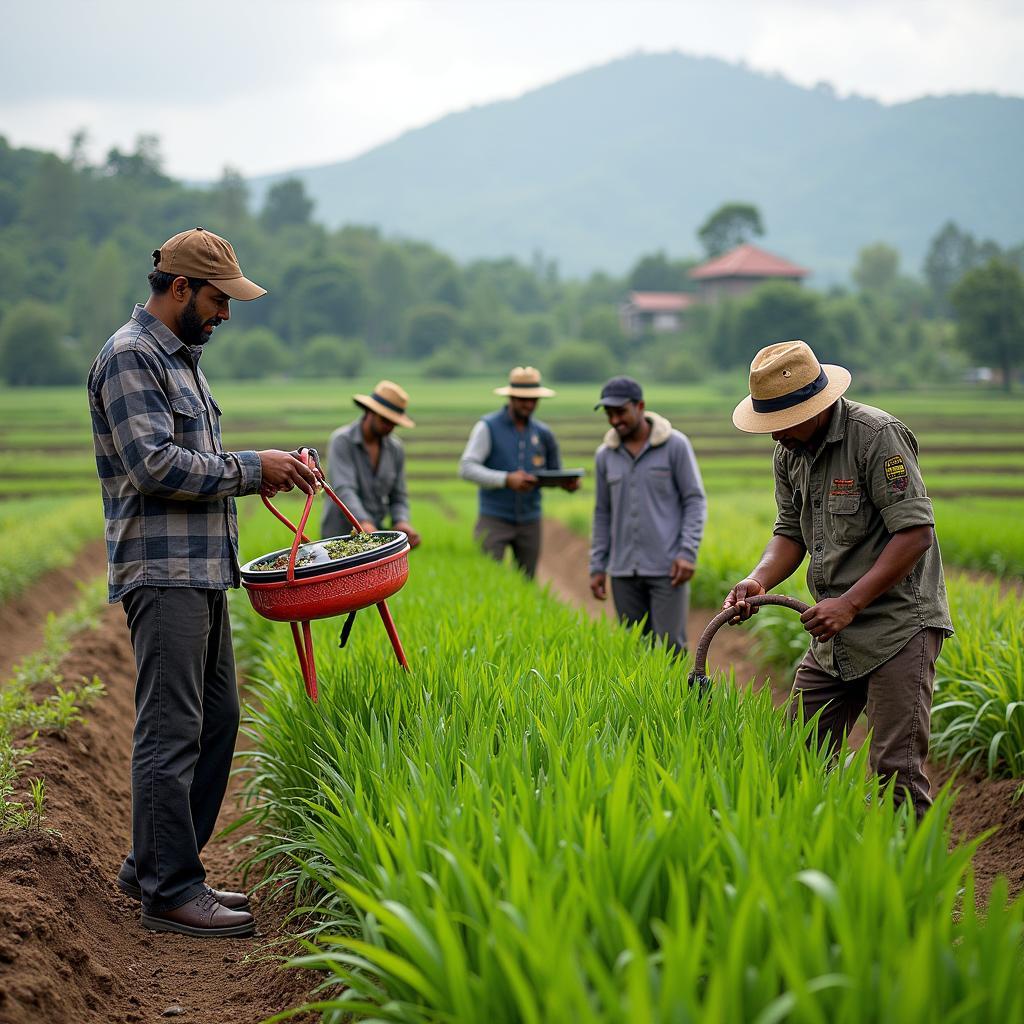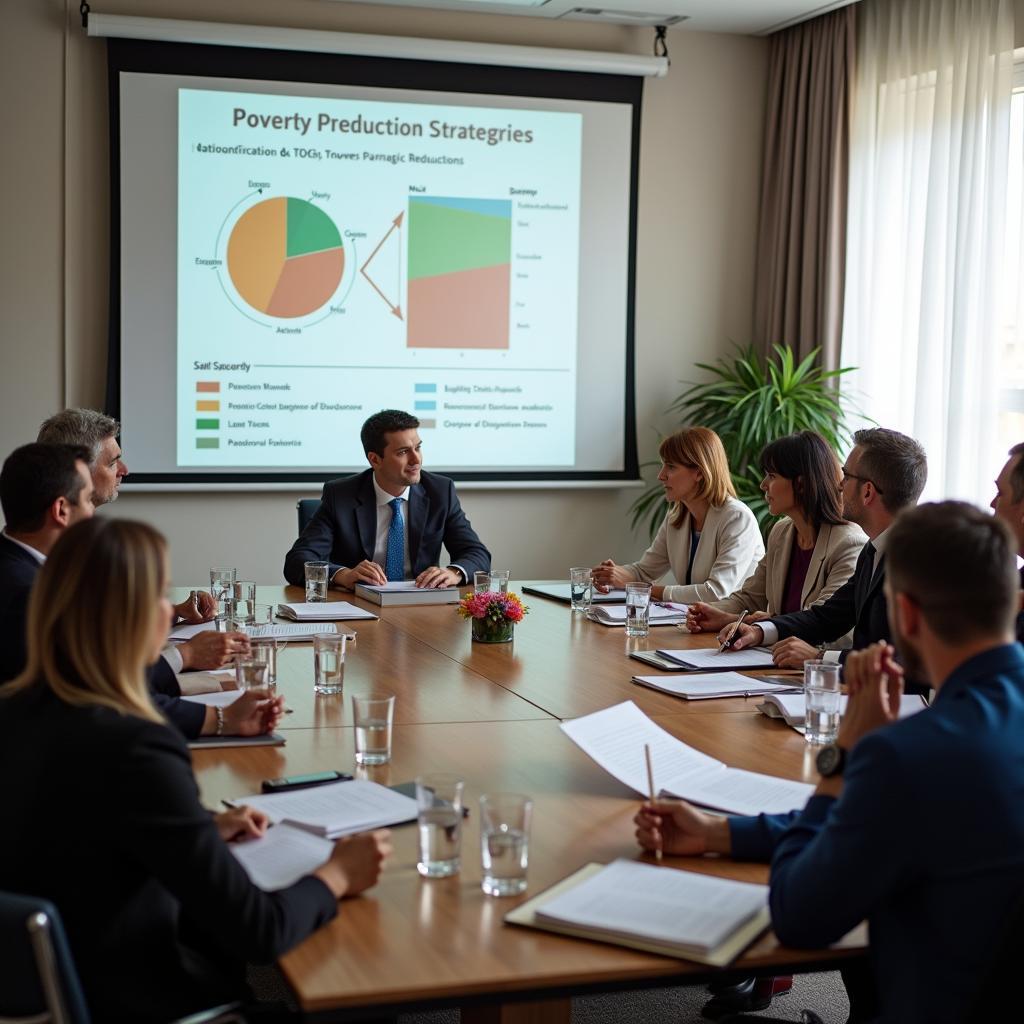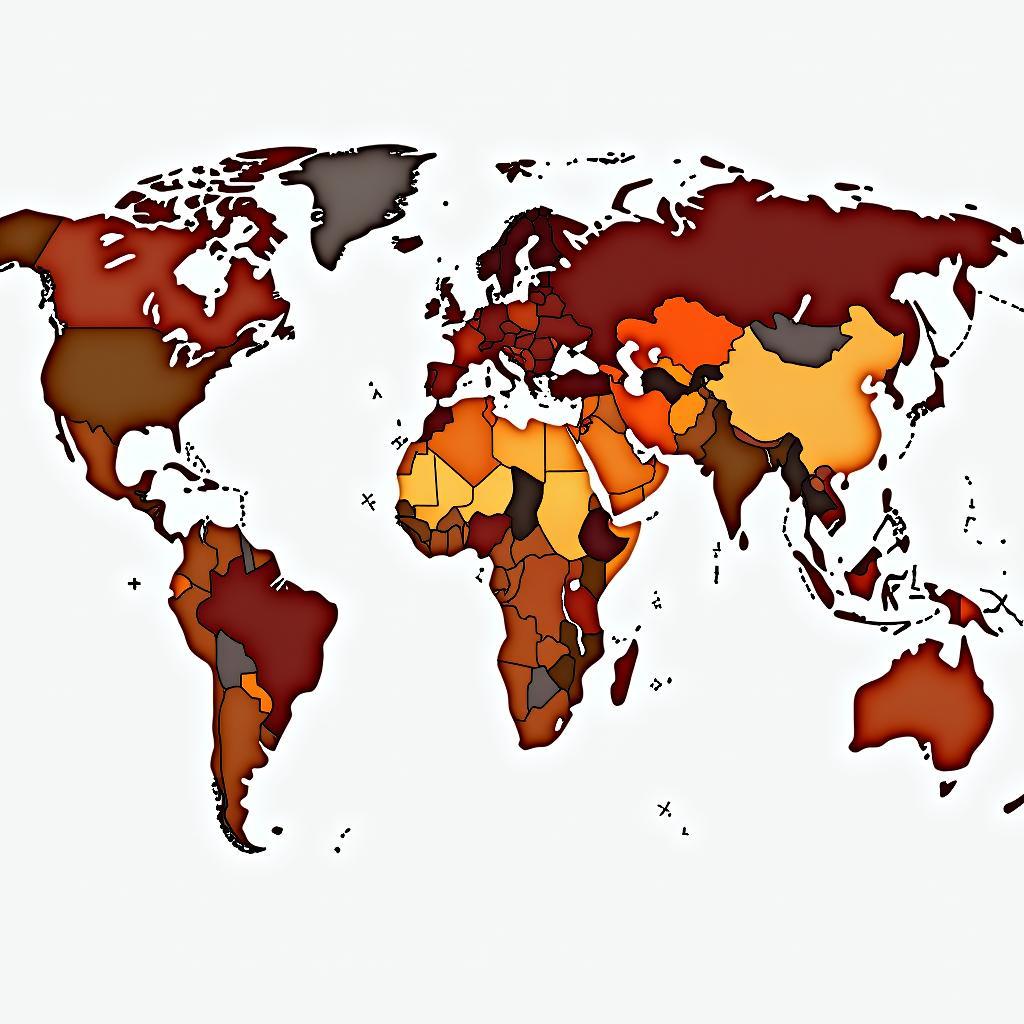The role of NGOs in poverty reduction is a recurring theme in IELTS Writing Task 2, appearing approximately once every 4-5 months in recent years. Based on analysis from leading IELTS preparation websites and past exam databases, this topic frequently emerges in various forms, particularly focusing on international organizations’ effectiveness in addressing global poverty.
Table Of Contents
As the role of international organizations in addressing poverty continues to be a crucial global issue, let’s examine one of the most common question types on this subject.
Question Analysis
Some people believe that NGOs (Non-Governmental Organizations) are the most effective organizations in reducing poverty in developing countries, while others think governments should take this responsibility. Discuss both views and give your opinion.
This question requires:
- Discussion of two perspectives on poverty reduction
- Analysis of NGOs’ effectiveness versus government responsibility
- A clear personal stance with supporting arguments
 NGOs working on poverty reduction projects in developing nations
NGOs working on poverty reduction projects in developing nations
Sample Essay 1 (Band 8.5)
The debate over whether NGOs or governments should spearhead poverty alleviation efforts has gained significant attention, particularly in developing nations. While both entities play crucial roles, I believe a collaborative approach would yield the most effective results.
NGOs often demonstrate remarkable efficiency in poverty reduction through their specialized approach and direct community engagement. Their grassroots connections and flexible operational structure enable them to identify and address specific needs quickly. For instance, organizations like Grameen Bank have successfully implemented microfinance programs, helping millions escape poverty through small business initiatives. Moreover, NGOs’ international networks facilitate knowledge sharing and best practice implementation across different regions.
However, government involvement remains indispensable in sustainable poverty reduction. State authorities possess the necessary infrastructure, resources, and legislative power to implement large-scale poverty alleviation programs. They can coordinate nationwide efforts, establish social security systems, and create enabling environments for economic growth. The role of NGOs in community development is enhanced when supported by strong governmental frameworks.
In my view, the most effective approach involves synergistic collaboration between NGOs and governments. While NGOs excel in targeted interventions and innovative solutions, governments can provide the institutional support and policy framework necessary for sustainable change. This partnership approach has proven successful in countries like Bangladesh, where government-NGO collaboration has significantly reduced poverty rates.
Sample Essay 2 (Band 6.5)
There is much discussion about whether NGOs or governments should be responsible for reducing poverty in developing countries. This essay will discuss both sides and give my opinion.
NGOs are good at helping poor people because they work directly with communities. They can provide immediate help like food, education, and healthcare. Also, NGOs often have experience from working in different countries. This means they know what works best to help people escape poverty.
On the other hand, governments have more power and money to help their citizens. They can make laws and policies that help reduce poverty. For example, they can create jobs and improve education systems. Sometimes, governments work better because they understand their country’s specific problems.
 Government and NGO collaboration in poverty reduction programs
Government and NGO collaboration in poverty reduction programs
I think both NGOs and governments should work together to fight poverty. When they cooperate, they can achieve better results. NGOs can provide expertise and direct help, while governments can support with resources and policies. This combination is the best way to help poor people.
Analysis of Band Scores
Band 8.5 Essay Analysis
- Sophisticated vocabulary: “spearhead,” “synergistic,” “indispensable”
- Complex sentence structures
- Clear organization with well-developed arguments
- Specific examples and evidence
- Coherent progression of ideas
Band 6.5 Essay Analysis
- Simple but clear vocabulary
- Basic sentence structures
- Some development of ideas
- Limited use of examples
- Basic organization present
Key Vocabulary to Remember
- Poverty alleviation (n) /pɒvəti əˌliːviˈeɪʃən/ – the act of reducing poverty
- Grassroots (adj) /ˈɡrɑːsruːts/ – at the most basic level of society
- Synergistic (adj) /ˌsɪnəˈdʒɪstɪk/ – working together to produce enhanced results
- Infrastructure (n) /ˈɪnfrəstrʌktʃə/ – basic physical systems of a country
- Implementation (n) /ˌɪmplɪmenˈteɪʃən/ – the process of putting a plan into action
For further insight into this topic, explore how international organizations can address global poverty through various approaches.
Similar questions may appear in future tests focusing on:
- The effectiveness of international aid organizations
- Public-private partnerships in poverty reduction
- Role of technology in poverty alleviation
Practice writing your own essay on this topic and share it in the comments for feedback and discussion.


